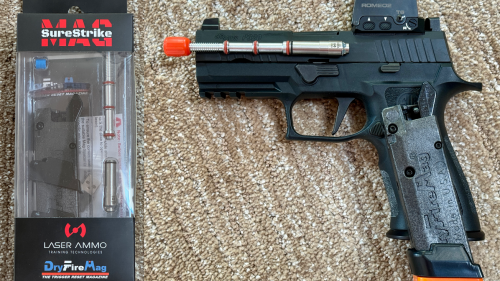By Frank Trost, Police1 Reader
When was the last time you checked your own zero? When was the last time you walked down the range and engaged in a “cold” stress shoot? No practice. No warm-up. Just shoot.
When was the last time you did a “cold” sprint up several flights of stairs — in uniform — to gauge your fitness? What about a round in the gym with some sort of intense work designed to reach muscle exhaustion? What about even a basic, recruit-level physical test?
Where are you in relation to your preconceived idea of your skill levels?
Do you know where all the free meals are? Do you spend hours in one place, kidding yourself into thinking you are doing “community policing?” How would you feel if someone was hurt because of you? What if you were hurt because of you?
I have no patience for anyone who would willingly place themselves in a predicament that would not only harm themselves but others as well. This profession wreaks havoc on our mental and physical well-being — we don’t need assistance on this destruction from fellow officers.
Truthfully answer these three questions:
- Am I mentally prepared to fight for my or another’s life?
- Am I physically fit and healthy enough for that fight and for the rest of my life?
- Am I maintaining a healthy balance in my life?
Was there a “no” or “I think so” in there? You can change it.
1. Am I mentally prepared to fight for my or another’s life?
If you drive to work in uniform, do not forget you are in uniform. Be aware and stay alert. I once stopped at a gas station in uniform on the way to work and ended up in the middle of a fight I had to break up. I had no radio and I was outnumbered. There are many lessons to be learned there.
Do not leave your house in the wrong mindset. If you are having difficulties at home with your family, resolve them or at least agree to resume at a later time. If you need to stay home, STAY HOME! I know, it is another cardinal sin to tell someone to call in sick, but I would rather run short with officers who are prepared than be heavy with officers who are not.
Conduct your dry-fire drills and equipment checks. Not only will this help you improve your skills, it will also put you in the right mindset.
2. Am I physically fit/healthy enough for that fight?
When was the last time you had a physical checkup? Do you engage in physical fitness activities and keep a good diet? There are many kinds of workouts. Find one that works for you.
My department has a weight room that I use when I miss my workout at home. My department also allows for working out on duty when feasible. Not everybody has that option, but everyone has an opinion about what works for them — just DO SOMETHING!
Do you train in some sort of contact action such as mixed martial arts, wrestling, or the techniques taught to you by your department or the academy? If the answer is no, I bet there is someone in your department who can put you on the right track.
Watch your diet. Even minor alterations to your diet can do wonders. Forgo or limit the soda, alcohol, and sugar intake. Watch the fast foods.
“But I work mids and the Greasy Pit is the only place open for us to eat at.”
Then pack a lunch! The Greasy Pit once in a while is OK, but every day?
3. Am I maintaining a healthy balance in my life?
After you get relieved, take a moment to review the events from your shift and learn from them. Include your significant other in this world, as most are truly interested in it. This allows some emotional healing for you and it keeps the bridge to your family clear and open.
Breathe in and breathe out and relax.
Only you can define the true objective, but it should include your health and success in your professional and personal life. There is a very good book I periodically read called Emotional Survival for Law Enforcement by Kevin Gilmartin.
This can help you reset your internal compass.
It is OK to relax and decompress with fellow officers as long as it is not at your family’s expense.
Keep an eye on your bottom line. Do not overextend yourself. It is always great to buy something new and shiny, but if you cannot afford it, then don’t! Every department has “that guy” who is always buying the latest and greatest thing, and then selling it a short time later at a loss. If “that guy” is you, seek out a credit counselor or someone who can help.
If you are still reading this, I know that you are an officer who has taken these steps — or is starting to — and I salute you.
If this is your road back to tactical recovery, then keep stepping! Policing takes an incredible toll on our health, physical and mental, and unless we recognize that, we are in for a short retirement.
This article, originally published on August 29, 2013, has been updated.







